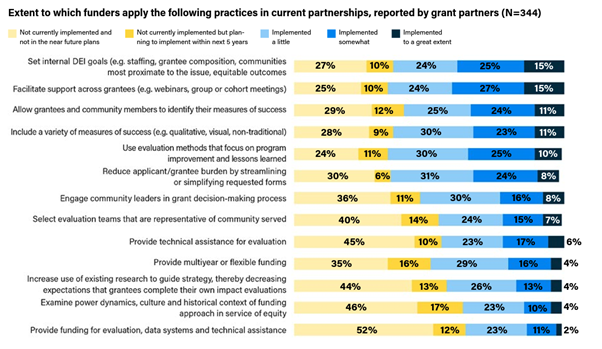Amanda Kartikasari
23 February 2024
As social entrepreneurs, our goal is to make a positive impact in the community we care about. To ensure our solution really reaches our intended beneficiaries to the desired level, we need to measure our impact to ensure effectiveness and find funding to ensure financial sustainability.
We often face a dilemma within these twofold interests - delivering on our social mission while securing our own livelihoods as founders and those of our employees. This leads us to question how we can avoid losing sight of our mission.
A new report “The Weight of Power” by Echoing Green, an incubator for early-stage social impact start-ups based in New York, highlights the challenges faced by social impact organisations that are led by Black, Indigenous, and other people of colour (BIPOC).
Social Impact Metrics
According to the research, innovators and funders generally have contrasting approaches to measuring impact. The latter group tend to be driven by factors such as reporting requirements or the funders' portfolio agenda, which can sometimes cause entrepreneurs to deviate from their own vision and mission.
It can be frustrating for innovators to have funders request irrelevant, generic metrics that require significant time and effort to obtain. Entrepreneurs may be asked to provide metrics such as program outcomes, individual behaviour change, or nationwide health rates which can distract them from focusing on their primary activities related to entrepreneurship and community outreach.
Our Fast Forward 2030 network members have different definitions of impact, depending on their regional and sectoral contexts. Safi Organics measures improved livelihoods of farmers in rural communities in Kenya through increases in soil quality, yields, and income. Meanwhile, Team Repair, which provides repair education for children in Britain, believes their impact should be a shift in UK policies and a change in the mindset of younger generations towards prioritising repair and reuse to reduce electronic waste.
The Key to Systemic Change
The report concludes that we need three key actions in order to create a fairer and more equitable system in philanthropy: multi-year flexible funding, simplified reporting, and additional funding for evaluation. At the time of writing, some funders have already taken steps towards this by setting internal Diversity, Equality, and Inclusion (EDI) goals and facilitating support webinars.

Despite its potential benefits to productivity, we doubt that these measures can effectively aid in advancing systemic change.
At Fast Forward 2030 we propose a more participatory approach, which includes involving community members in identifying success metrics, appointing evaluation teams that represent the community, and engaging community leaders in grant decision-making.
Community Involvement in Practice
We at the Institute for Global Prosperity believe that a more appropriate model is an inclusive bottom-up approach, which involves communities in designing solutions, manifested in its transformative framework called Citizen Science (a research carried out by people from the community, accounting their lived experiences and involving them in decision-making). Read Zarah Oke’s narrative about this in practice: Black History Month 2023: Making research more inclusive through Citizen Science.
Fast Forward 2030 goes beyond academia, offering a platform for collaboration among policymakers, entrepreneurs, and citizens to tackle ecological and social problems. For instance, we organised a virtual event to help entrepreneurs in Palestine, Africa, Pakistan, and the UK during lockdown, which connected global startup founders to collaboratively tackle emerging entrepreneurial challenges.
We continue to provide a platform for impact-driven entrepreneurs to network and exchange best practices, such as nature-inspired solutions, circular economy, and waste-to-value models. Check out our upcoming events and join us in the collective journey toward Sustainable Development Goals achievement.
---
Get the latest updates on Fast Forward 2030 initiatives, including the upcoming White Paper Series, by visiting our website or following our Instagram, X, and LinkedIn.
Join the UCL Institute for Global Prosperity to study new approaches to prosperity and kickstart your career as a future changemaker: MSc Global Prosperity, MSc Prosperity Innovation and Entrepreneurship and MSc Prosperity, People and Planet.
Photo by Tim Marshall on Unsplash
Fatemeh Sadeghi
30 May 2024 Feminists in the Global South have stepped out of the conventional territories of ‘women’s matters’ into more fund...